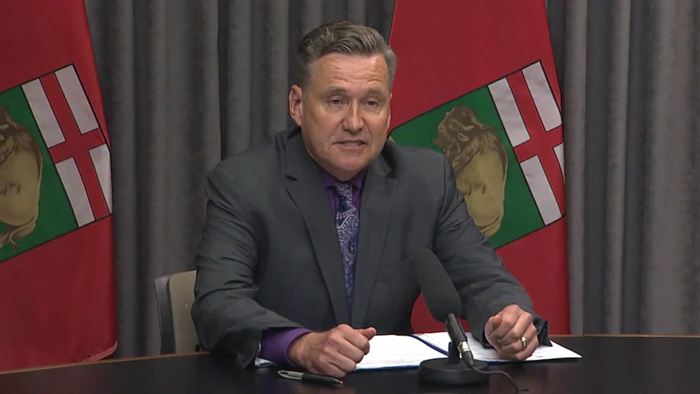The Manitoba government has signed a memorandum of understanding (MOU) with the governments of Saskatchewan and Alberta to advance economic corridors and support the movement of products within Western Canada and to various markets.
“Manitoba’s unique gateway and hub initiatives cannot develop in isolation, that is why external co-operative partnerships will leverage our initiatives for success,” said Minister of Transportation and Infrastructure Doyle Piwniuk. “With similar trade and transport access such as distance to markets, reliance on international ports and railway services, and similar commodity basis, Saskatchewan and Alberta are natural partners to work with on improving trade through transportation.”
Strategic transportation investments are a priority interest to develop and grow Manitoba’s trade capability and trade market access, the minister noted, adding that the intent of the MOU is to improve multi-modal transport infrastructure and services linking prairie economic and trade nodes to world markets.
The Manitoba government is delivering major highway and other transport investment strategies to grow its trade gateway capacity including:
- Trade and Commerce Grid Initiative to increase the proportion of strategic highway networks able to accommodate the heaviest truck loadings from 30 to 35 per cent over time;
- Winnipeg One Million Perimeter Highway Freeway Initiative to transform the Perimeter Highway to freeway standards by removing all at-grade access points and increasing lane capacity to meet the transport-based economic needs and travel demands as the Capital Region approaches 1 million people by 2035;
- $74-million investment in the Hudson Bay Railway to position the development of a sustainable northern economic corridor through the Port of Churchill; and
- $40 million in servicing infrastructure to support the expansion and future development of CentrePort South.
“The world needs what Saskatchewan has to offer,” said Saskatchewan Highways Minister Jeremy Cockrill. “We rely on dependable, robust, road, rail, air and port networks to ship our food, fuel and fertilizer across North America and around the globe.”
“Alberta is proud to partner with Saskatchewan and Manitoba, taking a leadership role in building new trade corridors that will help our provinces and our country,” said Alberta Transportation and Economic Corridors Minister Devin Dreeshen.
The MOU will promote co-operation on matters such as improving joint highway planning, efficiency measures supporting trade, joint advocacy on federal regulatory and funding issues impacting prairie transportation-based trade, and assessing private-sector investments and Indigenous partnerships in improving or developing new economic corridors.
Advancing Indigenous economic reconciliation is a key informing principle underlying the co-operative efforts, Piwniuk noted.




